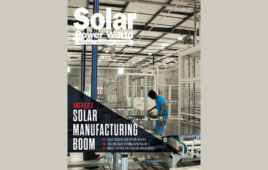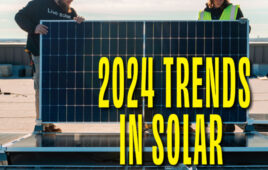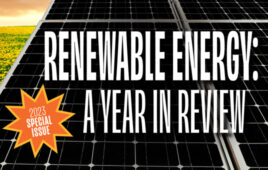Why tariff court cases are everyone’s problem
Never did I think so much of my career covering the solar industry would involve reading hundreds of pages of documents filed in federal courts. One minute I’m poring over the details of the latest midterm review of Sec. 201 trade tariffs on solar panels, and the next I’m going cross-eyed over lawyer lingo on anti-dumping claims in the Court of International Trade. The most visible part of a solar array, solar panels are also the most talked about product by many legislators and federal departments.
Here’s what I have gleaned from all the reports: imported solar panels are cheap and getting cheaper, and it’s making it difficult for the burgeoning U.S. solar manufacturing market to compete. Those facts are obvious across the board; how the federal government reacts to this will continue to play out in courts this year.
Since 2018, some form of tariff has been placed on imported solar panels under Sec. 201 of the Trade Act of 1974, which allows the president to impose duties on imports if they are causing serious injury to the U.S. industry. All imported monofacial solar panels in 2024 have a 14.25% tariff. If imported solar panels have a higher taxed price, more modestly priced American-made solar panels should be more attractive to U.S. buyers.
U.S. manufacturers say this safeguard is still necessary through 2026, because they still find it difficult to compete with cheap imports. A huge surge of imported solar panels (mostly bifacial products, which do not come with Sec. 201 tariffs) has entered the country in the last two years, contributing to a surplus of 20 GW of panels sitting in warehouses. A lawsuit in the Court of International Trade says this influx is due to a pause in antidumping/countervailing duty (AD/CVD) collection on imports from Southeast Asia. Panels are coming in at sub-20¢/W pricing, and if they were met with the AD/CVD rate the Dept. of Commerce deemed necessary, perhaps the country wouldn’t have such a surplus of cheap panels. Perhaps U.S. manufacturers wouldn’t be rethinking their production plans before even starting their new assembly lines.
The wheels of justice turn slowly, but the solar industry is moving at breakneck speed. Hopefully the president and the courts find a solution to this import problem soon so the domestic solar panel manufacturing market can finally, finally get off the ground. I really want to get back to reporting on good news and seeing smiling faces at factory ribbon cuttings. Until then, you know where to find me — glasses on, documents at 150% zoom, writing on solarpowerworldonline.com.
Kelly Pickerel
Editor in Chief
kpickerel@wtwhmedia.com





Tell Us What You Think!